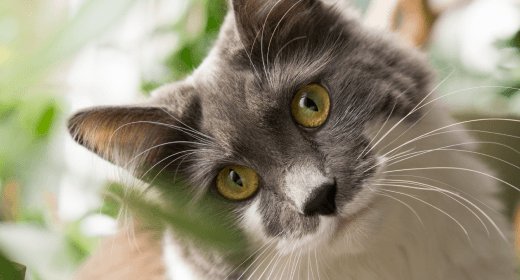

Aging pets may need special senior cat food, such as IAMS™ ProActive Health™ Senior Plus.
Mature cats need the same kinds of nutrients as younger adult cats, but as their metabolism slows, the quantities of those nutrients and the ways in which they are provided may need to change. Each cat is different, so ask your veterinarian for dietary recommendations based on your cat's physical condition.


Linoleic acid, a naturally occurring omega-6 fatty acid found in common pet-food ingredients such as corn and chicken fat, is a required nutritional component of the canine and feline diet.
Fatty acids are the building blocks of dietary fat and are formed by specific combinations of carbon, hydrogen, and oxygen.
Certain groups of fatty acids, called omega-3 (fatty acids in which the first double bond is located at the third carbon atom) and omega-6 (fatty acids in which the first double bond is at the sixth carbon atom), are particularly important to various functions in the cat's body.
The first double bond is located at the sixth carbon atom and, therefore, is an omega-6 fatty acid.
Omega-6 fatty acids are essential for maintenance of skin and coat condition, normal growth, proper membrane structure, and absorption of fat-soluble vitamins.
Linoleic acid is the most important omega-6 fatty acid because it cannot be synthesized by cats, and it is used to make other omega-6 fatty acids.
Cats also require arachidonic acid, because they cannot synthesize it from linoleic acid.
Most pet foods contain more than the required amount of linoleic acid. However, IAMS research shows that it is not just the amount, but the ratio of omega-6 to omega-3 fatty acids, that is most beneficial to cats.
The optimal omega-6:omega-3 fatty acid ratio to maintain a healthy skin and coat in dogs and cats is between 5:1 and 10:1, so five to 10 omega-6 fatty acids should be present for every one omega-3 fatty acid.